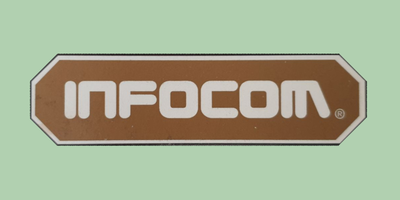Continuing my moving of articles from Medium to the Vintrospektiv homepage, this English version of an article from 2021 first appeared over there in October 2021 (but has since been deleted).
Infocom: The end of a genre
The history of Infocom has been fully explored: from the founding in 1979 for the distribution of Dungeon, which became the most successful text adventure game of all time under the name Zork Trilogy, to a leadership that really wanted to publish office software and ran down the company through a series of bad decisions and a lack of understanding of the market, to the end that began with the publication of the last four classic games in 1988/89 and manifested itself in the closure of the company in the same year, after a growing number of employees had already left it.
But what happened afterwards? In most essays, the further proceedings of the name and legacy of Infocom take up a minor addendum at most, even though there were several games, including some successful ones, and even a text adventure, before the Infocom brand disappeared for good in the beginning of the 2000s.
The final days saw the publication of a number of games that had already shed the genre of text adventure: the Mars Saga remake Mines of Titan, the role-playing game BattleTech: The Crescent Hawk’s Inception, the Macintosh-exclusive adventure-RPG hybrid Quarterstaff: The Tomb of Setmoth and the similarly constructed Circuit’s Edge.
In 1991, Activision (the owner of the brand, who had bought Infocom as early as 1986 and caused a large part of the bad blood within the company) realised the continuing popularity of the text adventures — that had already been removed from the market, however. The high-grade, but slipshod collection The Lost Treasures of Infocom came out, containing 20 of the 35 classic games, followed shortly afterwards by a second part with most of the remaining games. Leather Goddesses of Phobos was not included as some stock still remained, which was now additionally available for purchase via a coupon. Other titles couldn’t be licensed.
At the same time, a strategy began to build up on the good name and publish sequels of former games. BattleTech: The Crescent Hawk’s Revenge came out, as well as Leather Goddesses of Phobos 2: Gas Pump Girls Meet the Pulsating Inconvenience from Planet X, which had a witty enough title, but was universally slammed, even though it came from the author of the first part, Steve Meretzky. In addition, games from other developers were branded with the Infocom label without good reason, for instance Simon the Sorcerer by Adventuresoft for the U.S. market, and bizarrely the American NES version of the Japanese RPG Tombs & Treasure.
The opportunity to follow up on the company’s greatest success was seized as well: the Zork trilogy, which had already had two direct sequels, Beyond Zork and Zork Zero, and a spinoff in the Enchanter trilogy located in the same world. First concepts were developed for Return to Zork, which eventually came out in 1993 as a point & click adventure with filmed sequences. Similarly, around 1994 work began on a Planetfall sequel that was however never finished.
Return to Zork was a great success, and so after a few years (during which the new collection Classic Text Adventure Masterpieces of Infocom came out, much better curated than the Lost Treasures) two further Zork games followed: Nemesis and Grand Inquisitor. In 1997, Laird Malamed, the development lead of Zork: Grand Inquisitor and later Vice President of Activision, realised in the development phase of the game that the flourishing text adventure fan scene on the internet could be a catalyst for a larger marketing campaign. Mike Berlyn and Marc Blank, two former Infocom authors, were persuaded to write a short text adventure as a promotion for Grand Inquisitor. Indeed, in August 1997, Zork: The Undiscovered Underground came out as the first text adventure by a commercial vendor since 1993, programmed by G. Kevin Wilson, a fan who learned the programming language especially for the game.
Even though Zork: Grand Inquisitor was critically acclaimed and a box-office success, interest in the brand at Activision soon waned. Malamed, who had enjoyed a good reputation particularly with the fans of the old games, went to different tasks and there was no successor who cared about Infocom. The two planned sequels to Grand Inquisitor silently disappeared, and the name Infocom wasn’t used for so long that it changed hands as a brand several times beginning in 2007. Today, it appears that a small game developer named Infocom, LLC is the current brand owner.
However, no further games or reissues of old games came out, and after 13 years it can probably be assumed with some certainty that the era of Infocom is finally history.
For more information on Infocom, see Paul David Doherty’s excellent Infocom Fact Sheet.
(The Infocom logo is featured here under the assumption of “fair use”.)



Comments are closed.